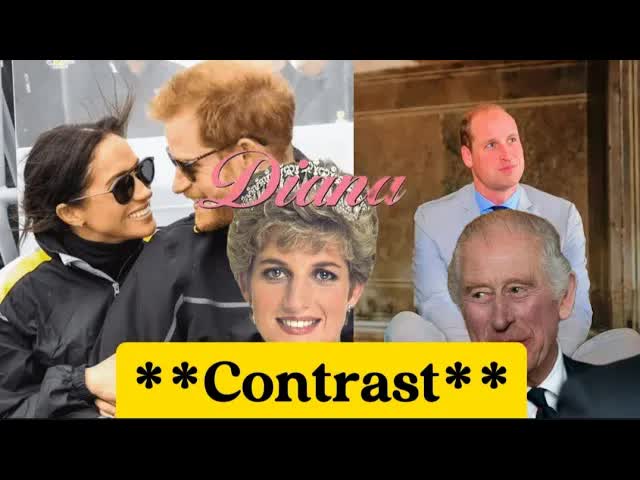In the world of royalty, few stories are as captivating as that of Prince Harry and Prince William.
These two brothers, once inseparable, have charted very different courses in their lives, shaped largely by their experiences and the legacy of their mother, Princess Diana.
This divergence has led to a fascinating contrast between Harry’s heartfelt dedication to his mother’s memory and William’s more traditional approach to royal duties.
Harry’s relationship with his late mother is deeply personal and profoundly impactful.
He openly acknowledges the emotional turmoil he faced after her tragic death, stating, “I was left alone to process my mother’s death.” This admission sheds light on how the royal family’s structure failed to support him during such a critical time.
While William has taken on the mantle of future king, preparing for his role with a sense of duty, Harry has channeled his grief into honoring Diana’s legacy through activism and compassion.
The paths these brothers have chosen reflect their distinct personalities and priorities.
Harry is fiercely committed to keeping Diana’s spirit alive, engaging in charitable work that resonates with her values.
He’s not just a figurehead; he’s out there making a real difference, reminiscent of his mother’s own dedication to humanitarian causes.
In contrast, William seems more focused on aligning himself with the royal establishment, nurturing relationships within the palace, and preparing for his eventual ascension to the throne.
As Harry continues to advocate for mental health and social issues, he embodies the essence of Diana’s legacy.
His commitment goes beyond mere words; it’s a call to action that reflects the values she instilled in him.
He approaches his charitable endeavors with the same passion and hands-on attitude that defined Diana’s work, demonstrating that he is not merely living in her shadow but actively working to carry her torch forward.
William, on the other hand, appears to be playing a more calculated game.
His relationship with Camilla and his efforts to maintain harmony within the royal family suggest a desire to secure his position rather than challenge the status quo.
It raises questions about whether he prioritizes personal ambition over genuine remembrance of their mother.
While he may be seen as dutiful, one can’t help but wonder if his focus on royal protocols comes at the expense of emotional authenticity.
The stark contrast between Harry’s rebellious spirit and William’s adherence to tradition creates a compelling narrative.
Harry’s willingness to speak out against the royal institution and its outdated practices echoes Diana’s own struggles against the constraints of royal life.
He’s not afraid to disrupt the narrative, challenging the norms that have long governed the monarchy.
This boldness sets him apart from William, who often appears more reserved and cautious in his public persona.
As we observe this royal saga unfold, it becomes evident that Harry’s journey is about more than just honoring his mother; it’s about redefining what it means to be a royal in the modern world.
He is not just a prince; he is a husband and father who prioritizes his family above all else.
This shift away from traditional royal obligations towards a more personal approach is a testament to his growth and evolution as an individual.
Meanwhile, William’s commitment to royal duties remains steadfast, but it begs the question: at what cost?
His careful navigation of palace politics might ensure stability, but it risks alienating him from the very people he is meant to serve.
The contrast between his polished image and Harry’s candidness highlights the evolving nature of the monarchy and the challenges it faces in connecting with a contemporary audience.
Ultimately, this tale of two princes reflects broader themes of legacy, duty, and the complexities of familial relationships.
As Harry and William continue to carve out their respective identities, their choices resonate beyond the palace walls.
They symbolize the struggle between tradition and progress, illustrating how personal experiences can shape public personas in unexpected ways.
In the end, the story of Harry and William serves as a reminder that even within the confines of royalty, individuality and authenticity can shine through.
Each brother’s journey is a reflection of their unique upbringing and the lasting impact of their mother’s legacy, creating a dynamic narrative that captivates audiences around the world.
As they navigate their paths, one can only hope that both will find a way to honor Diana while forging their own legacies in the ever-evolving landscape of the British monarchy.
